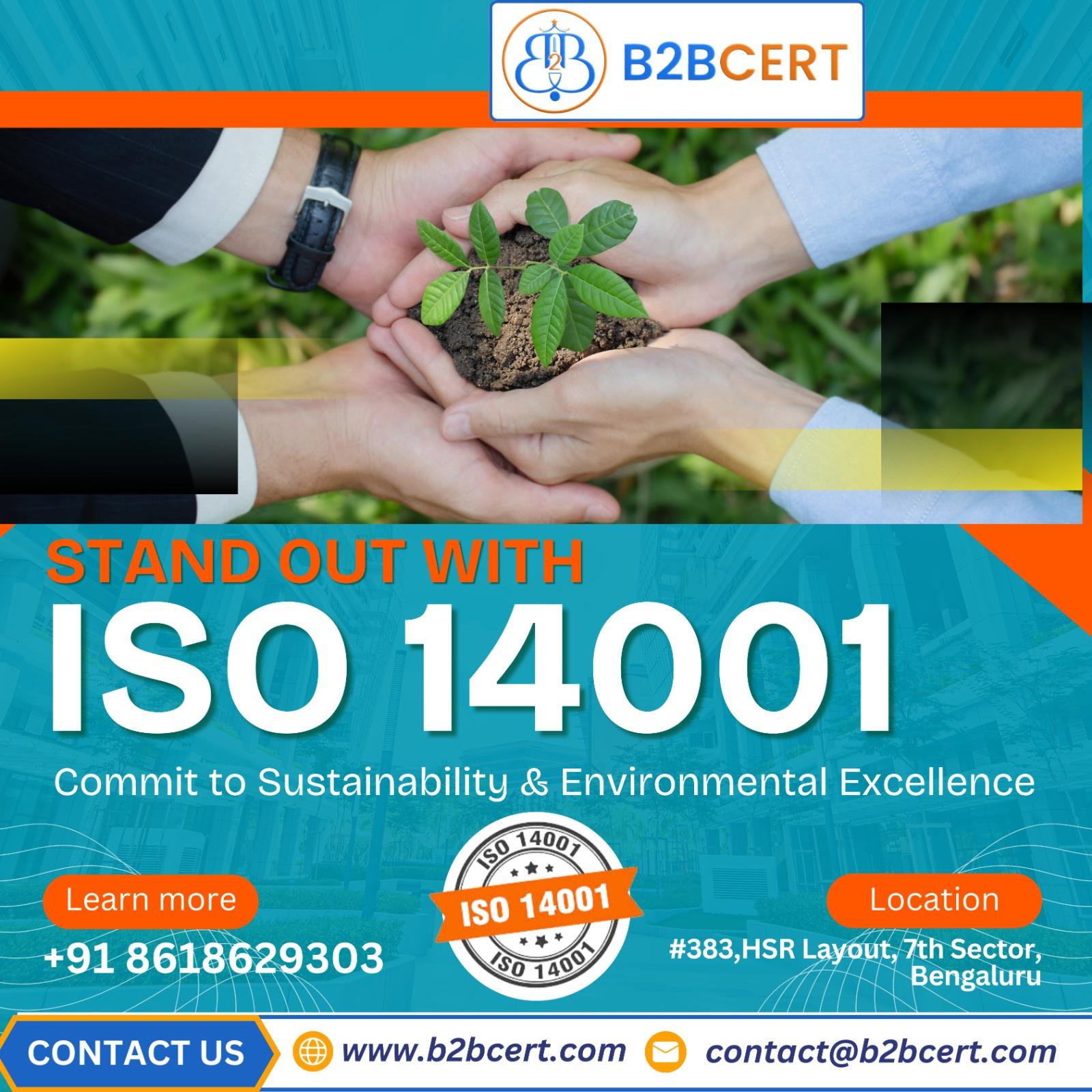Real-World Case Studies: Success Stories of Companies That Achieved ISO 14001 Certification

ISO 14001 is one of the most widely adopted environmental management standards in the world. Organizations across industries—from manufacturing to services—implement this standard to enhance environmental performance, improve resource efficiency, and strengthen stakeholder trust. As environmental responsibility becomes a global priority, the adoption of ISO 14001 Certification in Bahrain has seen consistent growth. Companies in the region increasingly rely on experienced ISO 14001 Consultants in Bahrain to develop sustainable strategies, manage compliance requirements, and streamline their environmental management systems.
This article highlights real-world inspired case studies of organizations that successfully implemented ISO 14001, the challenges they encountered, the strategies used to overcome them, and the long-term benefits experienced. It also provides insights into ISO 14001 Cost in Bahrain and the importance of a thorough ISO 14001 Audit in Bahrain.
Case Study 1: Manufacturing Facility Reduces Waste and Improves Efficiency
A large manufacturing company faced growing environmental concerns due to increasing waste generation, inefficient resource use, and rising regulatory pressures. The company recognized the need to adopt a proactive environmental management strategy and pursued ISO 14001 in Bahrain.
Challenges Faced
-
High volume of production waste
-
Lack of proper waste segregation practices
-
Significant energy consumption
-
Limited awareness of environmental responsibilities among staff
Strategies Implemented
With the support of ISO 14001 Consultants in Bahrain, the organization performed an environmental impact assessment and identified key areas requiring improvement. Waste reduction initiatives were launched, including recycling programs, resource monitoring systems, and optimization of machinery to reduce energy consumption. Training sessions were conducted at every operational level to ensure employees understood environmental compliance expectations.
Positive Outcomes
-
30% decrease in waste within the first year
-
Reduction in energy consumption due to improved system efficiency
-
Enhanced employee awareness and participation in sustainability programs
-
Strengthened compliance with environmental regulations
This transformation not only improved sustainability performance but also reduced operational costs, demonstrating the long-term value of ISO 14001.
Case Study 2: Logistics Company Improves Fuel Efficiency and Reduces Emissions
A logistics and transportation company aimed to reduce its carbon footprint and improve operational sustainability. The company decided to pursue ISO 14001 Certification in Bahrain to align its operations with international environmental standards.
Challenges Faced
-
High fuel consumption
-
Difficulty maintaining consistent environmental practices across multiple locations
-
Lack of emission monitoring systems
-
Increasing client expectations for sustainable logistics solutions
Strategies Implemented
The organization developed a structured environmental management system focusing on fuel efficiency and emission control. Route optimization software was introduced to reduce unnecessary travel. Drivers received training on eco-friendly driving practices. Additionally, the company implemented a real-time fuel monitoring system to track consumption and identify inefficiencies.
Positive Outcomes
-
Lower fuel consumption due to improved route planning
-
Reduction in greenhouse gas emissions
-
Stronger reputation among environmentally conscious clients
-
Improved stakeholder engagement through transparent reporting
This case shows how ISO 14001 supports organizations in adopting greener and more cost-effective operational practices.
Case Study 3: Construction Firm Enhances Compliance and Minimizes Environmental Impact
A construction company faced challenges related to dust emissions, waste handling, and noise pollution at project sites. With rising regulatory requirements in the region, leadership decided to implement ISO 14001 in Bahrain to ensure consistent environmental management across all projects.
Challenges Faced
-
High dust and noise levels during construction
-
Lack of centralized waste management practices
-
Difficulty meeting environmental regulations across diverse project sites
-
Limited environmental training among labor teams
Strategies Implemented
The company introduced a site-specific environmental management plan for each project. Dust suppression techniques, such as water spraying, were implemented. Waste materials were segregated and recycled wherever possible. Regular environmental monitoring and internal audits ensured compliance and immediate corrective actions when necessary.
Positive Outcomes
-
Better regulatory compliance through structured control measures
-
Reduced environmental complaints from surrounding communities
-
Improved waste management and recycling rates
-
Enhanced reputation as an environmentally responsible builder
This case highlights how ISO 14001 can help construction companies implement practical solutions that minimize environmental harm.
Case Study 4: Food Manufacturing Company Reduces Water Usage and Enhances Sustainability
A food manufacturer struggled with high water usage and insufficient environmental risk management. To ensure long-term sustainability, the company sought ISO 14001 Certification in Bahrain.
Challenges Faced
-
Excessive water consumption
-
Limited systems to identify environmental risks
-
Lack of documentation for compliance
-
Difficulty achieving consistency across multiple production lines
Strategies Implemented
A water conservation strategy was developed with the guidance of ISO 14001 Consultants in Bahrain. Low-flow fixtures were installed, and water recycling systems were introduced in certain processes. Detailed environmental risk assessments enabled the company to identify and prioritize high-impact areas. Robust documentation practices were implemented to prepare for the final ISO 14001 Audit in Bahrain.
Positive Outcomes
-
Significant reduction in water consumption
-
Better preparedness for regulatory inspections
-
Improved sustainability reporting
-
Increased customer and stakeholder trust
This transformation showcased how small operational adjustments can create substantial environmental and financial benefits.
Understanding ISO 14001 Cost in Bahrain
The ISO 14001 Cost in Bahrain varies depending on:
-
Size and complexity of the organization
-
Number of processes and locations
-
Scope of environmental impacts
-
Required upgrades in infrastructure or monitoring systems
-
Training needs for employees
-
Frequency and depth of internal audits
While costs may vary, organizations typically experience fast returns in the form of reduced resource consumption, lower waste disposal fees, and improved regulatory compliance.
Conclusion
These case studies demonstrate how organizations from different industries have leveraged ISO 14001 to improve environmental responsibility, operational efficiency, and stakeholder confidence. As environmental sustainability becomes a core expectation for global and regional markets, more businesses are turning to ISO 14001 Certification in Bahrain to strengthen their environmental management systems. With the right guidance and a successful ISO 14001 Audit in Bahrain, organizations can significantly enhance their sustainability efforts and establish a strong competitive advantage.


